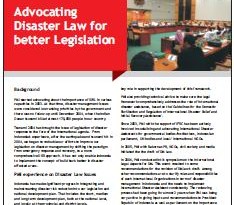
This document encapsulates PMI’s journey in advocating disaster law for better legislation.
![]()
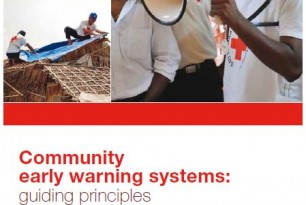
This guide aims to provide an overview of successful practice from the field for the disaster risk reduction/ management practitioner interested in EWS. It presents guiding principles that will build a strong foundation for the design or strengthening of EWS at any level. It is not an operational, but a strategic, guide that insists on asking the right questions and exploring all perspectives prior even to deciding whether or not early warning is the appropriate tool for a given context. Overall, this guide aims to inspire readers to take simple integrated steps towards sustainable EWS that make clear contributions to community-level risk reduction and saving lives and livelihoods.
![]()
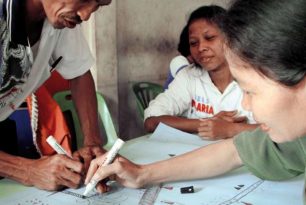
The aim of this manual is to introduce the user to project/programme planning in a Red Cross / Red Crescent environment. It describes the different stages of the planning phase of the “project/programme cycle” within the context of Results- Based Management (RBM). It also gives an overview of the various components of RBM and explains how to integrate and apply this approach in practice.
In addition, the manual summarises the other key phases of the cycle (assessment, implementation and monitoring, evaluation) and provides references to the key IFRC manuals on these phases.
![]()
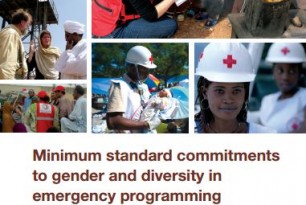
The Minimum Standard Commitments for each sector are based around a framework of: dignity; access; participation; safety; and internal protection systems. The checklist provides specific indicators which an organisation can use to rate its progress (achieved, partially achieved, not achieved and not applicable), justify its score and propose next steps. This checklist provides a quick tool for assessing compliance with the Minimum Standard Commitments in Emergency Programming for Red Cross / Red Crescent staff and volunteers in: emergency health; food security; water, sanitation and hygiene; emergency shelter; livelihoods; non-food items and disaster risk reduction. It serves as a tool for organisations to mark progress and identify their next steps.
![]()
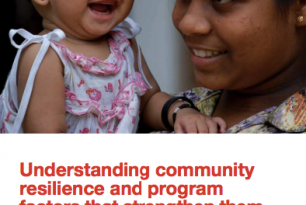
This document outlines characteristics of safe and resilient communities, including presenting case studies of communities which received Red Cross / Red Crescent support through its Tsunami operation, as well as factors and lessons in successful community-based disaster risk reduction (CBDRR) programming.
![]()